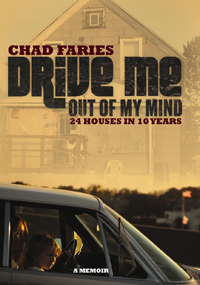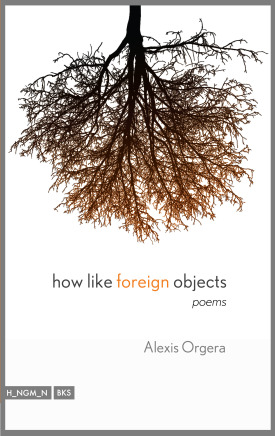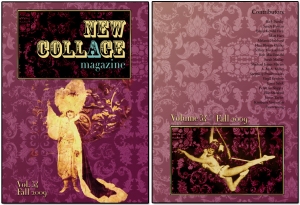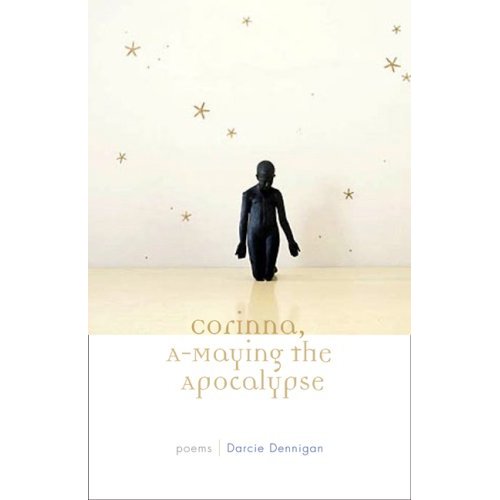Drive Me Out of My Mind: 24 Houses in 10 Years
 Drive Me Out of My Mind: 24 Houses in 10 Years
Drive Me Out of My Mind: 24 Houses in 10 Years
by Chad Faries
Emergency Press, 2011
280 pages / $16 Buy from Amazon
In his 1958 book, The Poetics of Space, Gaston Bachelard writes, “if we want to go beyond history, or even, while remaining in history, detain from our own history the always too contingent history of the persons who have encumbered it, we realize that the calendars of our lives can only be established in its imagery.” The Poetics of Space describes a philosophy of poetic Imagism (precision of imagination) coupled with, in part, a phenomenology of the home as (not just) mortar, 2×4, and stone. In my reading of Bachelard, our histories are only as real as the Images that embody them.
I was reminded of The Poetics of Space when I read Chad Faries’ memoir, Drive Me Out of My Mind: 24 Houses in 10 Years. The book is separated into a chapter-per-house-lived-in, each chapter begins with a street-and-town, a year, and some song lyrics—a soundtrack to the book that almost acts as white noise on which we can focus when the screaming and partying in the foreground get too depressing. Each chapter ends with “and then we moved.” The book begins at Faries’ birth in 1971 and moves its readers through a difficult–sometimes funny, sometimes grotesque–landscape of pick-up-and-go with his drug-booze-and-sex addicted mother, her family of women, and a wild cast of male characters, to 1981. Drive Me is not only scaffolded by the houses the author lived in before he hit puberty, but Faries’ houses exist in a space created by the coupling of memory and imagination in order to forge the memoired homestead. “Our whole house,” Faries writes early on, “was made of the shadows of others, and we sucked that gray light into our guts to push the total darkness away and claim everything as our own.”
April 4th, 2012 / 12:00 pm
How Like Foreign Objects by Alexis Orgera
Congratulations to HTMLGIANT contributor Alexis Orgera, whose How Like Foreign Objects was just released by H_NGM_N BKS:

Dean Young had this to say about Orgera’s poems:
Alexis Orgera’s poems perpetually, vitally involve the reconceiving and reenacting of the means of intimacy even as they say again and again, I can no longer be myself. These are love poems between strangers who may for a moment celebrate and endure recognition; their voice is arch, angelic and at odds with itself, mercurial in its metaphoric riches, captivating in improvisational zeal, beautiful, and impossible not to love.
If you’d like to purchase the book, you can do so from H_NGM_N for $14.95. Click on the donate/PayPal button once you get to the HLFO page.
Please welcome three new Giants to the fold: Brian Foley (who made his guest-posted debut below, and more forthcoming); Alexis Orgera (author of Illuminatrix and all around rad woman); and Nathaniel Otting (proprietor of Schoen Books, publisher, translator, and much more). We’re thinking they’re going to help us squawk more about poetics, translation, language, and a whole lot of else.
Project Dust World considers the new issue of New CollAge

One of our regular & distinguished commenters, Michael James Martin, has some work in the new issue of New CollAge magazine, the magazine of–wait for it–New College, in Florida. Over at his site, MJM peruses the issue, which contains work by such luminaries as Dean Young, Matt Hart, Peter Jay Shippy, Emily Kendal Frey, and many more. It also contains a poem by yours truly. I’ve also got a copy of the issue sitting on my desk, and had been planning to write about it when I had a free minute to do more than just browse the thing (est’d occurrence of free minute: Nov. 7th, 5:42 PM) but since MJM nailed it, I’m just going to go ahead and direct you over his way. You can also view some excerpts from the issue (though not mine or his) over at the New CollAge website. Cheers, Michael! And a hearty cheers as well to Alexis Orgera (ed.) and the staff at New CollAge.
October 8th, 2009 / 11:11 am
Haut or Not: Alexis Orgera

Lewis Lapham, of Harper’s fame, started a new quarterly focusing in depth on ‘timeless’ humanist qualms such as war, love, nature, etc., and I’m happy to see this on her shelf. The thinness of that Moby Dick spine looks like some abridged version, but I’m hoping knot (get it? fuck). Joyce and Beckett sit well next to each other like Exile and Absence out for a date. I can only imagine the library late fees out on Paradise Lost — the Fall of man at 20 cents a day. Alexis is onto something with all this irrevocable mor(t)al stuff. (And who needs The Iowa Review when I got a review of Iowa right here: corn blows.) If you think I’m grasping for material here, I’ll just repeat what I said to Marco Polo, ‘get lost.’
Rating: Haut.
DON’T LET THE LIGHT BLIND YOU: A Q&A with poet Alexis Orgera
I am afraid, dear illuminator,
to tell you the truth. – “Book of Hours (Two)”
Of all the sweet, sweet things I saw/met/read/drank at AWP, one of the sweeter ones was a little chapbook called Illuminatrix, by a poet named Alexis Orgera. Illuminatrix is published by Forklift, Ink, the book arm of Matt Hart & Eric Appleby’s immeasurably badass magazine Forklift, Ohio. Anyway, my magazine was sharing a booth with Forklift, and so I was able to acquire Alexis’s book and spend a bit of time with her, without having to even leave the confines of our little patch of carpeting. It was very Dorothy Gale. (I was wearing beautiful red shoes.)
Illuminatrix is a skinny, fascinating book. Light is not exactly a novel theme for poetry, but this is surely a take on it that you’ve never encountered before. Orgera isn’t interested in light which dapples birch branches or reminds the poet of his childhood home–this is anything but SoQ country, is my point–her light issues forth from the place where physics meets metaphysics; it hearkens back to a time when mathematics was a branch of philosophy, then suitably distorts that mindset so it can live in a world of electric vacuums and lamps. Orgera’s “illuminators” are characters, all sharing the same name/title and therefore distinguished only by their actions–or else the poet’s frame of mind when, as above, she addresses one of them directly. In fact they are not distinguishable from one another. It is as if they have obtained a fluidity of identity and being, or perhaps are all part of the same secret order of shining ninja monks. After the jump, I Q&A with Alexis about her book, Florida, Dean Young and Courtney Love. But first! A poem from Illuminatrix:
“Falling”
There was some wabi-sabi between them
and like cherry blossoms they fell
into bed. There’s nothing in me that’s light, she said.
He buried his head between her legs
to make her sing. But there was no song
in her. She was thinking
about the impermanence of motion.
He was thinking about the inescapable
nothingness he felt on Sunday afternoons.
How life is a series of lightbulbs nobody uses.
A series of odd delinquencies called weekends
in which the ancient wabi-sabi drools between them.

